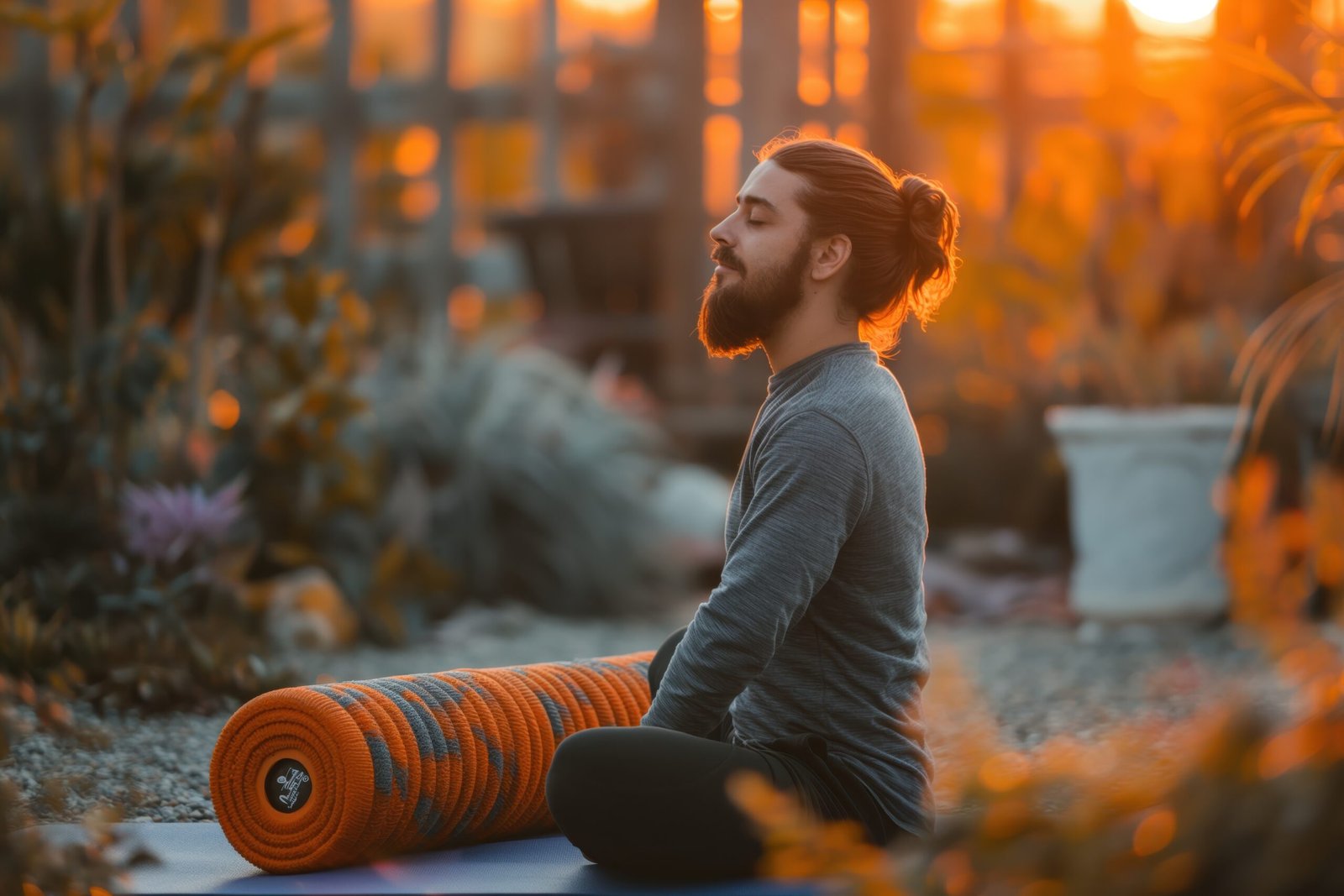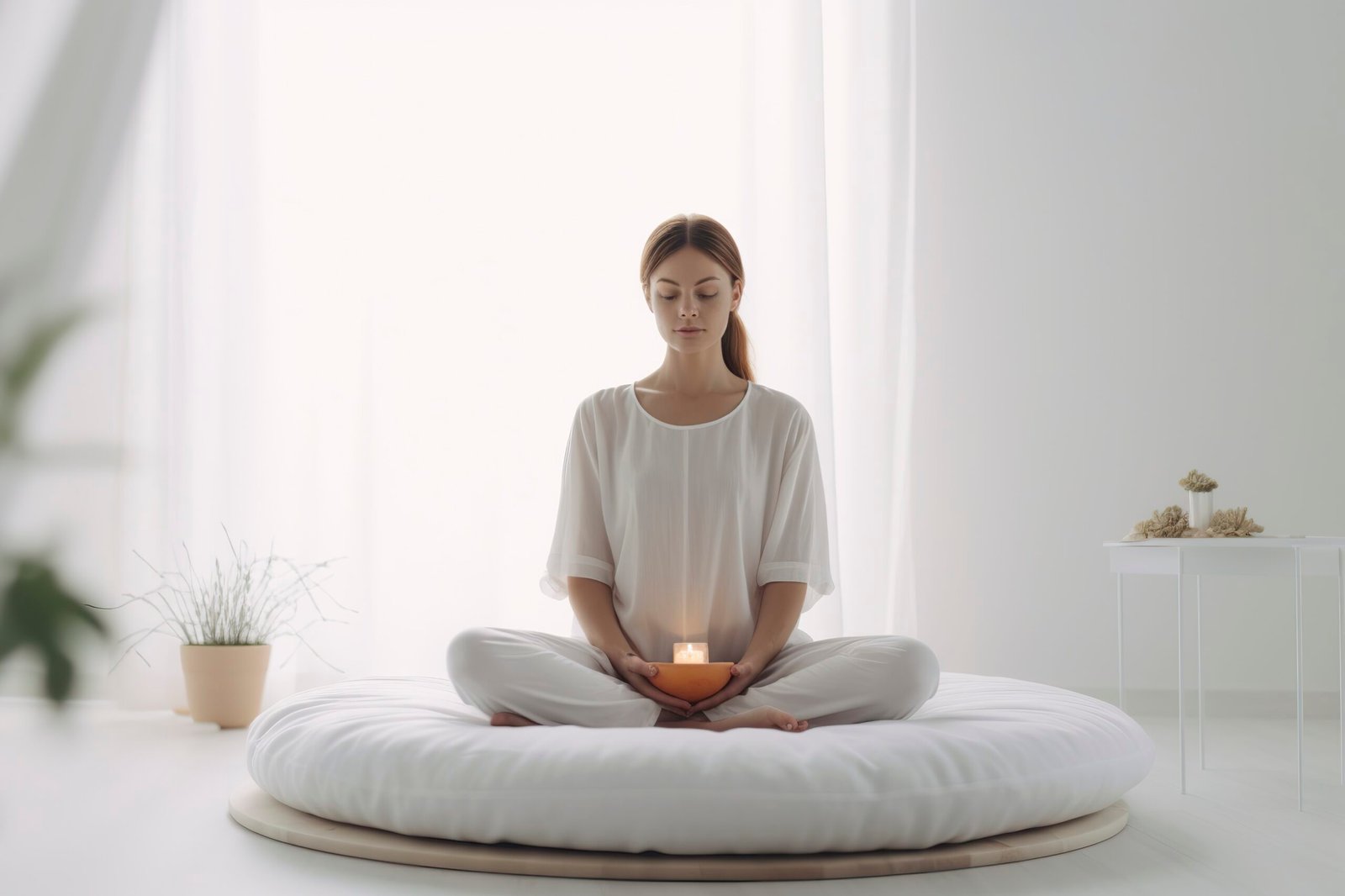Introduction: Mindfulness is More Than Meditation In today’s fast-paced world, stress and distraction are constant companions. We check our phones hundreds of times a day, struggle to focus on one task, and often feel mentally exhausted before noon. The antidote? Mindfulness. But mindfulness isn’t just sitting cross-legged and chanting. It’s a daily life skill used…
How to Practice Mindfulness While Using Your Smartphone
A Realistic Guide to Becoming More Aware and Intentional with Daily Screen Time Table of Contents 1. Introduction In today’s hyperconnected world, smartphones are like digital limbs — extensions of our minds, memories, and relationships. While they bring the world to our fingertips, they also fragment our attention, reduce presence, and fuel anxiety. But what…
🧘♀️ Mindful Self-Analysis: The Calm Path to Inner Clarity and Problem Solving
Mindful self-analysis is the key to uncovering hidden problems and emotional patterns. When you sit calm and observe your thoughts without judgment, you begin to understand the root causes of your struggles. This is where true healing starts. In this article, we’ll explore how to practice mindful self-analysis, how it transforms your emotional clarity, and…
The Healing Power of Watching a Sunset: A Simple Act to Bring Peace in a Complicated World
In today’s fast-moving world, where life feels like a constant race — from deadlines to endless notifications — we often forget something very simple yet powerful: # Peace is already around us. We just need to notice it. Have you ever really paused to watch a sunset?Not just glanced at it while busy on your…
Digital Mindfulness in an AI World: 7 Proven Ways to Stay Calm, Focused, and Human Amidst Automation
Introduction: The Silent Struggle in a Noisy Digital World AI was supposed to simplify life.So why does it feel like we’re busier—and more stressed—than ever? Every morning, professionals worldwide wake up to a flood of: Meet Rohit, a project manager. With AI automating his schedules and reports, he expected relief. Instead, he found himself overwhelmed,…
🌍 Why the World Needs Mindfulness Now More Than Ever
In a world that’s constantly rushing, scrolling, comparing, and competing—what we need isn’t more speed… it’s more stillness. Today, more than ever before, humanity stands at a crossroads. Our technology is faster, but our hearts are heavier. Our minds are more connected online, but disconnected within. We’re exhausted, overwhelmed, and silently asking: Is there another…
Understanding Phobia: A Deep Practical Guide to Identifying and Overcoming Fear with Mindfulness
What is Phobia? (Let’s Understand It in Simple Words) Phobia is more than just being scared. It’s a type of anxiety disorder where your fear of a specific object, activity, or situation becomes so strong that it interferes with your everyday life. Imagine this: These are not just fears. These are phobias when they start…
Mindfulness Questions: A Complete FAQ Guide for Beginners & Practitioners
Mindfulness is a powerful practice for mental clarity, emotional balance, and holistic well-being. If you’re curious or just starting out, it’s natural to have questions. This FAQ-style post answers the most common and insightful queries about mindfulness—practical, simple, and based on experience. ❓ What is mindfulness? Mindfulness is the ability to be fully present in…
Mindfulness in Sports: How to Boost Focus, Flow & Performance
In competitive sports, physical training alone is no longer enough. The most successful athletes today are those who also train their minds. Mindfulness in sports is a growing approach that helps athletes stay present, focused, and emotionally balanced during both training and competition. ✅ What is Mindfulness in Sports? Mindfulness is the practice of being…
Embracing Mindfulness: A Path to Inner Peace and Clarity
Mindfulness is more than just a buzzword; it’s a transformative practice that can significantly enhance your quality of life. In this blog post, we will explore what mindfulness is, how to practice it, and the myriad benefits it offers. By the end, you will be inspired to take action towards incorporating mindfulness meditation into your…
The Ultimate Guide to Mindfulness Meditation: What It Is, How It Works, and Why It Will Transform Your Life
What Exactly is Mindfulness Meditation? Mindfulness meditation is much more than a trend or a passing fad—it’s a powerful mental practice rooted in ancient traditions that has been scientifically proven to bring numerous benefits to mental, emotional, and physical health. But what exactly does “mindfulness meditation” mean? At its core, mindfulness meditation is the practice…
AI-Powered Mindfulness: How Technology is Revolutionizing Meditation Practices
In the fast-paced digital age, mindfulness is more important than ever. With the rise of artificial intelligence (AI), technology is now playing a significant role in enhancing meditation and mindfulness practices. AI-powered mindfulness tools are reshaping the way people approach meditation, stress management, and mental well-being. These innovations offer guided meditations, personalized recommendations, real-time feedback,…
Seasonal Mindfulness: Embracing the Changes of Nature with Presence
As the seasons change, so too does the rhythm of life. From the vibrant energy of spring to the tranquil stillness of winter, each season brings its own unique opportunities for mindfulness and reflection. By practicing seasonal mindfulness, you can align your inner state with the natural world, creating a deeper connection to the present…
Mindful Practices for Holidays: Cultivating Calm and Connection
Holidays are often filled with joy, celebration, and cherished moments. However, they can also bring stress, overwhelm, and a sense of busyness. The expectations to socialize, plan, gift, and prepare meals can sometimes overshadow the true spirit of the holidays. By practicing mindfulness, you can bring a sense of calm, presence, and balance to your…
Spring Cleaning for Your Mind: Refresh and Renew with Mindfulness
As the season of renewal and growth, spring offers a natural opportunity to clear out the clutter in our homes, but it’s also an ideal time to refresh our minds. Just as we clean out our closets, reorganize our living spaces, or freshen up our environments, our minds can benefit from a little spring cleaning…
Stress Reduction: Mindfulness Practices for a Calmer Life
In today’s world, stress is almost a universal experience. The demands of modern life—work, family, social obligations, and personal expectations—can often feel overwhelming. Chronic stress can have serious consequences on both our mental and physical health, leading to anxiety, fatigue, heart problems, and even burnout. Therefore, finding effective ways to reduce and manage stress is…
Mindful Journaling Practices: A Powerful Tool for Self-Reflection and Stress Relief
In today’s fast-paced world, our minds are often cluttered with thoughts, worries, and distractions. This constant mental chatter can lead to stress, anxiety, and a lack of clarity. One effective way to clear the mental clutter and gain insight into our inner world is through mindful journaling. Mindful journaling combines the art of writing with…
Using Mindfulness to Relieve Stress: A Path to Inner Calm
Stress is a natural part of life, but when it becomes chronic, it can take a toll on both our mental and physical well-being. In today’s fast-paced world, many of us find ourselves overwhelmed by responsibilities, deadlines, and constant pressure. One powerful tool that can help manage and reduce stress is mindfulness. Mindfulness is the…
Mindful Living: Embracing Presence in Every Moment
In today’s fast-paced world, it’s easy to get caught up in the rush of life, juggling responsibilities and distractions. However, living mindfully—being fully present and engaged in each moment—can offer a sense of peace, clarity, and fulfillment. Mindful living isn’t just about meditation; it’s a way of life that encourages awareness, intentionality, and a deeper…
Creating a Mindful Morning Routine: Setting a Positive Tone for the Day
The way we begin our day sets the stage for everything that follows. A mindful morning routine can help you start your day with intention, focus, and calm. By incorporating mindfulness into your morning, you can reduce stress, increase your productivity, and foster a sense of well-being that carries through the entire day. This blog…
Practicing Mindfulness in Daily Routines: Enhancing Presence and Well-Being
In our fast-paced, often overwhelming lives, it can be easy to get lost in the rush of daily tasks, deadlines, and responsibilities. However, integrating mindfulness into your daily routine can bring balance, clarity, and a deeper sense of connection to the present moment. Practicing mindfulness doesn’t require large blocks of time or special settings—it can…
Mindful Parenting: Nurturing Emotional Resilience and Connection
Parenting is one of the most rewarding, yet challenging, roles one can have. The day-to-day demands of caring for children can leave parents feeling overwhelmed and disconnected, but practicing mindfulness can bring a profound shift. Mindful parenting involves being present, non-judgmental, and intentional in your interactions with your children. It offers an opportunity to reduce…
Mindful Activities for Children: Cultivating Calm, Focus, and Emotional Resilience
In today’s fast-paced world, children are often exposed to a variety of distractions and stressors. Whether it’s school pressure, social media, or a busy home environment, children are learning how to navigate complex emotions and manage their reactions. Practicing mindfulness, or the art of being fully present and aware in the moment, can be an…
Staying Present as a Parent: Embracing Mindfulness in Parenting
Parenting is one of the most rewarding yet challenging roles anyone can take on. As a parent, the demands on your time and energy can be overwhelming, leaving little space for self-care or reflection. Amidst the busy schedules, school runs, and constant needs of children, it’s easy to feel like you’re just going through the…
Mindful Relationships: Nurturing Connection and Understanding
In any relationship, whether romantic, familial, or platonic, clear communication, mutual respect, and emotional understanding are essential to building a lasting bond. However, relationships often face challenges, such as misunderstandings, unmet needs, and unresolved conflicts. Mindfulness offers a transformative approach to relationships, encouraging individuals to be present, listen deeply, and respond thoughtfully. This practice not…
Improving Communication with Mindfulness: Strengthening Connection and Understanding
Effective communication is the cornerstone of any healthy relationship, whether in personal, professional, or social contexts. Misunderstandings, emotional reactions, and distractions can often derail conversations, making it difficult to truly connect with others. Mindfulness offers a powerful approach to communication, helping individuals listen more deeply, respond thoughtfully, and build stronger, more meaningful relationships. In this…
Practices for Couples: Cultivating Connection and Mindfulness Together
In today’s fast-paced world, relationships can often be challenged by distractions, misunderstandings, and the stresses of daily life. Couples can sometimes lose touch with each other and struggle to communicate effectively, leading to emotional distance. Mindfulness practices offer couples a powerful way to reconnect, improve communication, and build a deeper sense of understanding. In this…
Mindfulness and Creativity: Unlocking Your Creative Potential with Presence
Creativity is a gift that allows us to express our thoughts, ideas, and emotions in unique ways. Whether you’re an artist, writer, designer, or anyone working in a creative field, you’ve likely experienced moments of inspiration and, at times, creative blocks. One powerful tool to unlock and nurture your creativity is mindfulness. Mindfulness, the practice…
Mindfulness in Writing: Cultivating Clarity and Creativity Through Presence
Writing can be an incredibly rewarding creative process, but it’s not without its challenges. Whether you’re a professional writer, a blogger, or just someone journaling for personal growth, it’s common to face moments of frustration, writer’s block, or self-doubt. In these moments, mindfulness can be a powerful tool to help overcome obstacles and tap into…
Overcoming Creative Blocks: Unlocking Your Full Creative Potential
Creative blocks are a common challenge that many professionals, artists, writers, designers, and entrepreneurs face. These moments of stagnation can make it feel impossible to produce new ideas, solve problems, or move forward with projects. While creativity is often seen as a natural flow, it can be hindered by various internal and external factors, leading…
Mindfulness at Work: Boosting Productivity, Reducing Stress, and Enhancing Well-Being
In today’s fast-paced, high-stress work environment, professionals are often juggling multiple responsibilities, facing tight deadlines, and managing ongoing pressure. With this constant hustle, maintaining mental clarity and emotional balance can feel overwhelming. However, integrating mindfulness into your workday can provide a solution. Mindfulness at work allows individuals to stay present, reduce stress, and enhance productivity,…
Mindfulness Exercises for Busy Professionals: Boost Focus and Reduce Stress
In today’s fast-paced work environment, staying productive while managing stress can feel overwhelming. As a busy professional, you’re constantly juggling deadlines, meetings, and endless tasks, which can easily lead to burnout. However, incorporating mindfulness exercises into your daily routine can help improve focus, reduce stress, and enhance overall well-being. In this blog post, we’ll explore…
Staying Focused at Work: Tips for Boosting Productivity and Concentration
In today’s fast-paced work environment, maintaining focus can be one of the most challenging tasks. With endless distractions, multitasking demands, and constant notifications, staying focused and productive at work is becoming increasingly difficult. However, the ability to focus is critical to achieving professional goals, maintaining high performance, and reducing stress. This blog post explores effective…
Mindfulness Basics: An Introduction to the Practice and Its Benefits
Mindfulness is a practice that has been embraced globally for its transformative effects on mental health, emotional regulation, and overall well-being. In an increasingly fast-paced world, mindfulness offers a way to slow down, focus, and find peace amidst the noise. Rooted in ancient meditation practices, mindfulness has been scientifically proven to bring a wide range…
The Science Behind Mindfulness: How It Works and Its Benefits
Mindfulness is more than just a popular trend; it is a scientifically-backed practice that has gained widespread recognition for its mental, emotional, and physical benefits. While the ancient roots of mindfulness lie in Buddhist meditation, modern research has delved into its profound effects on the brain, body, and overall well-being. In this blog post, we…
Mindfulness Resources: Tools for Cultivating Awareness and Peace
Mindfulness is a powerful practice that enhances mental clarity, emotional resilience, and overall well-being. Fortunately, numerous resources are available to help individuals incorporate mindfulness into their lives. From apps and books to online courses and podcasts, these resources offer a variety of ways to develop a consistent practice. In this blog post, we will explore…
Apps, Books, and Tools: Enhancing Your Mindfulness Practice
As mindfulness continues to grow in popularity, various tools, including apps and books, have been developed to help individuals integrate mindfulness into their daily lives. These resources not only guide individuals in cultivating mindfulness but also offer evidence-based practices to enhance mental, emotional, and physical well-being. In this blog post, we’ll explore some of the…
Research on Mindfulness: Insights and Evidence on Its Benefits
Mindfulness has gained significant attention in recent years for its profound benefits on mental, emotional, and physical well-being. While mindfulness practices have been around for thousands of years, the scientific community has only recently begun to explore its true potential. Research on mindfulness continues to grow, revealing fascinating insights into how mindfulness practices can transform…
Advanced Mindfulness Practices: Deepening Your Meditation Journey
Mindfulness is a powerful tool for cultivating awareness, presence, and emotional resilience. While basic mindfulness techniques like focused breathing and body scanning can be transformative, there are also advanced mindfulness practices that can take your meditation journey to the next level. These practices deepen your connection to the present moment, foster inner peace, and help…
Exploring Non-Attachment: A Path to Freedom and Inner Peace
In our fast-paced, material-driven world, the concept of non-attachment may seem counterintuitive. Yet, it is a powerful practice that leads to greater emotional freedom, mental clarity, and spiritual peace. Non-attachment is not about rejecting the world around us or avoiding relationships, possessions, or experiences. Instead, it is about developing a healthy, balanced perspective that allows…
Spiritual Growth with Mindfulness: A Journey of Inner Awakening
Mindfulness is often associated with stress reduction and emotional well-being, but its benefits extend far beyond mental health. When practiced with intention, mindfulness can lead to profound spiritual growth, helping individuals develop a deeper connection to themselves, the world around them, and a higher sense of purpose. By becoming fully present in each moment, we…
Guided Meditations: A Pathway to Inner Peace and Healing
In today’s fast-paced world, finding moments of calm and relaxation can be a challenge. However, guided meditations offer a practical and effective way to experience deep relaxation, reduce stress, and enhance mindfulness. By following the gentle guidance of a meditation instructor, you can tap into a state of peace and tranquility that may seem difficult…
Meditations for Letting Go: A Path to Freedom and Peace
In our fast-paced world, it’s easy to accumulate mental, emotional, and even physical burdens. Whether it’s past mistakes, unresolved emotions, or stress from daily life, these weights can hinder our well-being and prevent us from experiencing true inner peace. Meditations for letting go provide a powerful way to release these burdens, allowing us to move…
Relaxation Meditations: A Path to Calm and Inner Peace
In today’s hectic world, where stress and anxiety often take center stage, finding effective ways to relax and restore balance is essential. Relaxation meditations are powerful tools designed to help individuals unwind, reduce stress, and reconnect with their inner peace. These practices promote mental clarity, emotional stability, and overall well-being by calming the mind and…
Health and Wellness: A Holistic Approach to a Better Life
In today’s fast-paced world, health and wellness have become paramount concerns for individuals seeking balance and well-being. With rising stress levels, sedentary lifestyles, and an increasing focus on mental and emotional well-being, achieving true health and wellness involves more than just physical fitness. It requires a comprehensive approach that integrates mind, body, and spirit. This…
Mindfulness for Better Sleep: Unlocking the Power of Restful Nights
Sleep is one of the most important factors for maintaining overall health and well-being. Yet, millions of people around the world struggle with sleep disorders or poor sleep quality. While there are numerous treatments available for sleep issues, one powerful and natural approach is mindfulness. This practice, known for its ability to reduce stress and…
The Connection Between Mindfulness and Physical Health: A Holistic Approach to Well-Being
Mindfulness is often discussed in the context of mental and emotional health, but its benefits extend far beyond the mind. Recent studies have shown a profound connection between mindfulness and physical health, demonstrating that this simple yet powerful practice can lead to lasting improvements in the body as well. From reducing stress to boosting immunity,…
Personal Mindfulness Journeys: Transforming Lives One Step at a Time
Mindfulness is not just a practice—it’s a journey. For many, the path to mindfulness is deeply personal, filled with challenges, growth, and profound change. Each person’s journey is unique, shaped by individual experiences, struggles, and insights. These personal stories offer a glimpse into the transformative power of mindfulness and how it can shape our lives…
Reader Stories: Real-Life Experiences with Mindfulness
Mindfulness is a deeply personal journey, yet its transformative effects are universally relatable. Real-life stories from individuals who have embraced mindfulness offer insight, inspiration, and motivation for others on their own paths. This collection of reader stories highlights the diverse ways mindfulness has impacted lives, fostering resilience, emotional well-being, and personal growth. What Are Reader…
Meditation Techniques: Finding the Right Practice for You
Meditation is a transformative practice that nurtures mindfulness, reduces stress, and enhances overall well-being. However, with so many meditation techniques available, it can be overwhelming to know where to start. Each technique offers unique benefits, and exploring different approaches can help you discover what resonates best with your mind and lifestyle. This guide delves into…
5-Minute Breathing Meditation: A Quick Path to Calm
In today’s fast-paced world, finding moments of tranquility can seem like a challenge. A simple and effective way to reconnect with your inner peace is through a 5-minute breathing meditation. This quick yet powerful mindfulness exercise can help you center your thoughts, reduce stress, and enhance focus in just a few moments. This blog will…
Guided Body Scan for Relaxation: A Step Toward Inner Peace
In today’s fast-paced world, relaxation often feels like a luxury. However, practicing a guided body scan is an effective way to reduce stress, enhance awareness, and reconnect with your body. This simple yet powerful mindfulness practice promotes deep relaxation and can be incorporated into your daily routine. This blog explores the concept of a guided…
Mindful Eating: A Journey to Health and Awareness
In a world where fast food and multitasking often dominate our eating habits, mindful eating offers a refreshing, transformative approach to our relationship with food. It invites us to slow down, savor each bite, and align our eating habits with our physical and emotional needs. This guide explores the concept of mindful eating, its benefits,…
A Guide to Mindful Eating: Nourishing the Body and Soul
In today’s fast-paced world, eating often becomes a rushed activity, disconnected from the joy and nourishment it can bring. Mindful eating is an approach that encourages awareness, gratitude, and connection with the food we consume. This guide explores what mindful eating is, its benefits, and how to incorporate it into your daily routine. By transforming…
Recipes and Practices: Nourishing the Mind, Body, and Soul
Mindfulness is not just a state of being; it’s a practice that can be incorporated into everyday life through intentional activities and nourishing habits. By combining mindful practices with wholesome recipes, you can create a balanced lifestyle that nurtures your mind, body, and soul. In this blog post, we’ll explore simple yet powerful recipes and…
Mindful Living: A Path to a Balanced and Fulfilled Life
In a world that often feels overwhelming, the concept of mindful living offers a refreshing way to reconnect with yourself and the present moment. By embracing mindfulness in all aspects of life, you can cultivate a sense of peace, purpose, and balance. In this blog post, we’ll delve into what mindful living means, its benefits,…























































